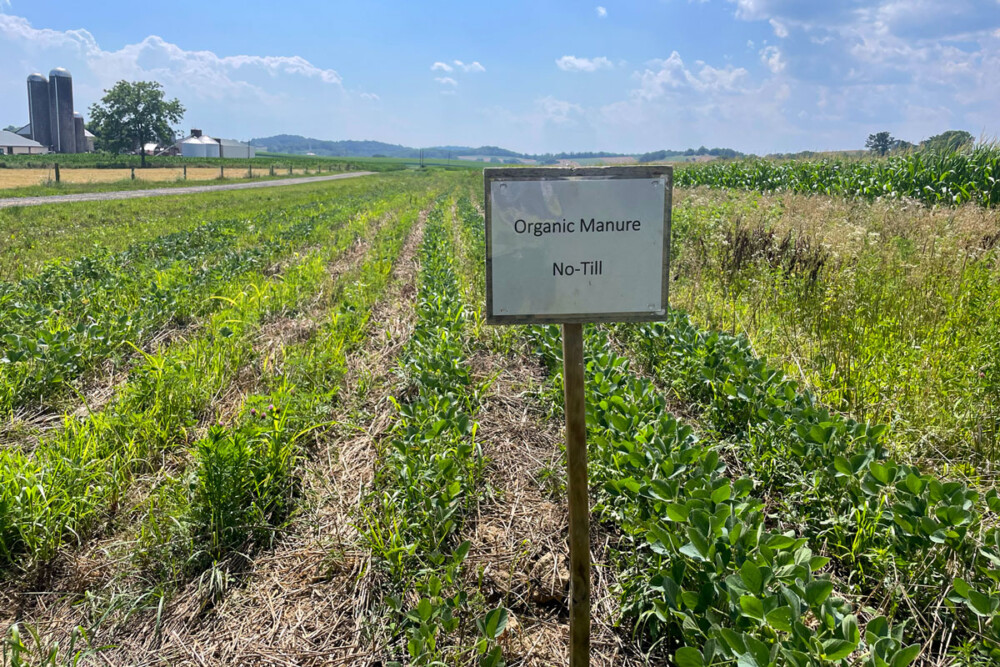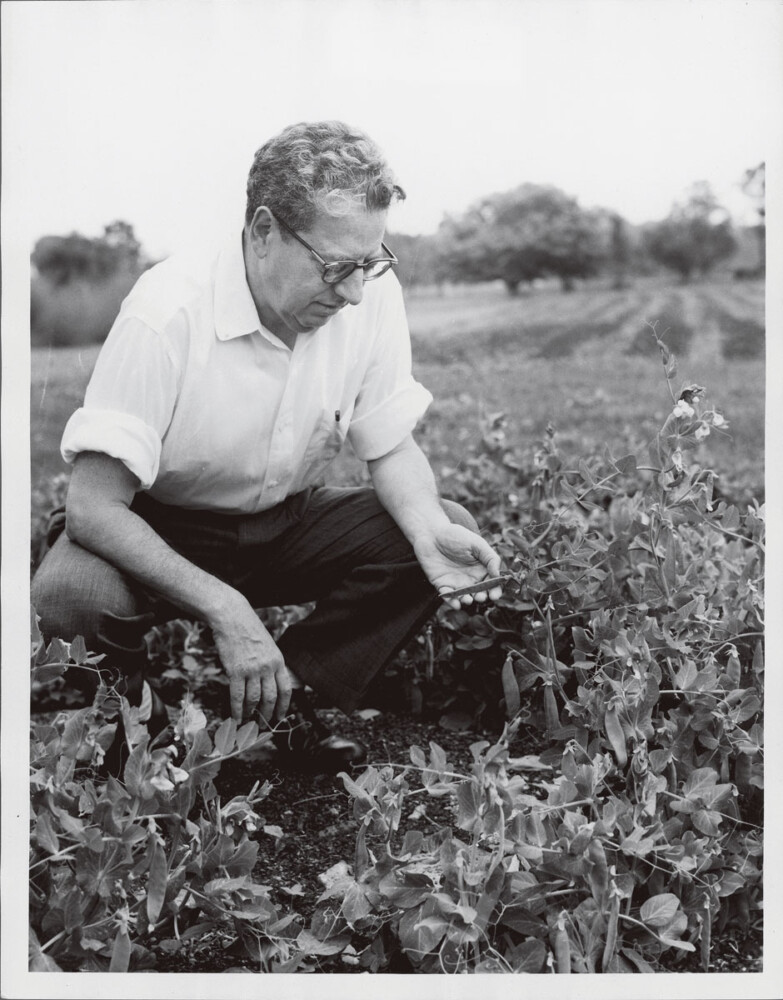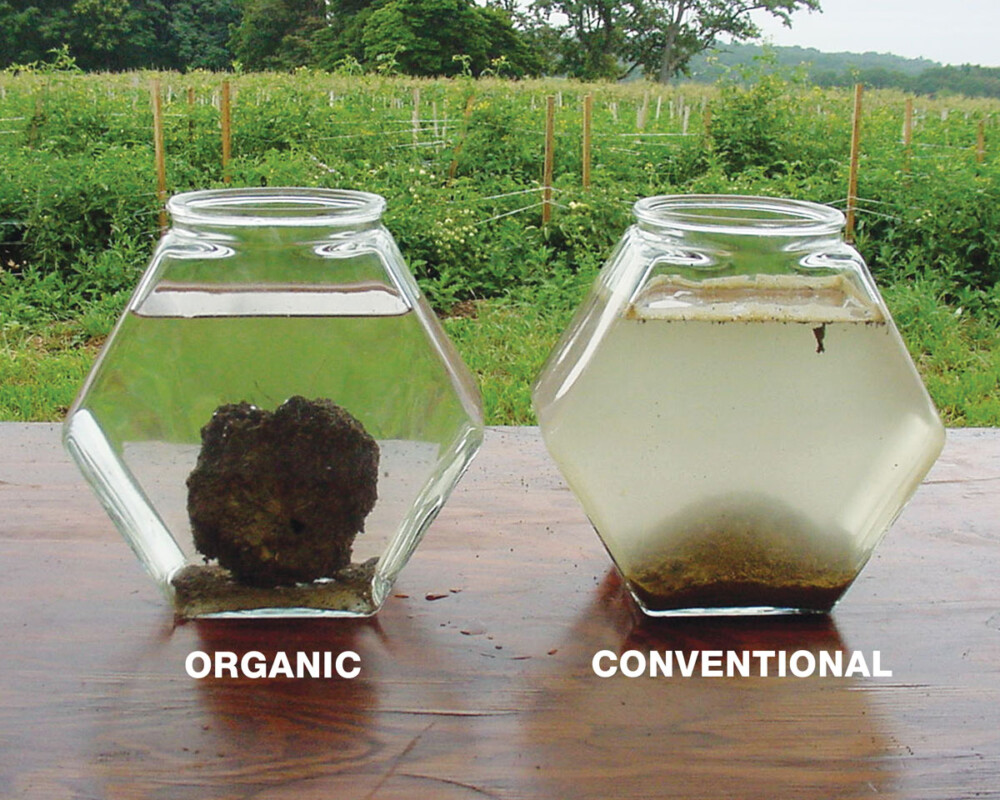
How J.I. Rodale sparked a global organic movement from a small PA town
Think Philly has all the history? Emmaus helped launch a global organic revolution. Learn about this “Founding Father” of organic farming during Earth Month.
If you’ve ever debated buying organic or conventional vegetables, you can thank J.I. Rodale and Sir Albert Howard. In 1930, after a lifetime of health issues, entrepreneur J.I. Rodale relocated his business from New York City to Emmaus, PA, in search of a healthier lifestyle.
The Fathers of the Organic Food Movement
Born in 1873, Sir Albert Howard spent much of his botany career in India. Howard was the first Westerner to document and publish the Indian techniques of composting, healthy soil, natural pest management, cover cropping, and organic growing methods.
After reading Howard’s writing, J.I. Rodale wrote, “We must get a farm at once and raise as much of our family’s food by the organic method as possible.” He and his wife, Anna, purchased a run-down, 63-acre farm and began planting the seeds of the organic food movement. Soon, both his and his land’s health saw vast improvements. In 1940, he published the inaugural issue of Organic Gardening and Farming.
Nitrogen: Good for Plant Growth, Great for Bombs
During World War II, Americans grew Victory Gardens to feed troops and free up land and resources. By 1944, 18.5 million gardeners planted Victory Gardens in public spaces, window sills, backyards, and every available green patch. By 1945, a new crop of plants sprouted up nationwide.

Nitrogen is a key ingredient in TNT and explosives. The government built 10 munition-making plants and shifted facilities making fertilizer to weapons at the time. After the war, these facilities switched back to fertilizer production as farmers worked to replenish farms and food supplies. This led to the rise of conventional, chemical-based farming, as well as pesticides, GMOS, or synthetic fertilizers.
Healthy Soil = Healthy Foods = Healthy People
Around this time, Rodale discovered that the local soil was of poor quality and nutrient-deficient. Unhealthy soil leads to a loss of organic matter, erosion, water pollution, and toxic residue in foods. Unhealthy soil was a “canary in the coal mine,” which prompted J.I. Rodale to create the Soil and Health Foundation in 1947 (renamed the Rodale Institute in 1970). Unlike conventional growing practices, organic methods work harmoniously with nature to build and improve soil health.
In 1948, he published Pay Dirt, which linked chemical agriculture and declining public health. The canary is still singing. According to the United Nations, using current practices, we have fewer than 60 years of farmable topsoil remaining.
The non-profit has spent the last 75 years teaching about the importance of nutrient-rich, contaminant-free soil and holistic growing methods. Decades later, after J.I. Rodale coined the term “organic,” his son, Robert Rodale, coined “regenerative organic” to describe a holistic approach to farming that encourages innovation and improvement of environmental, social, and economic measures.

Blossoming from a one-man movement to a Global game-changing non-profit
The Rodale Institute is headquartered on a 386-acre certified organic farm in Kutztown, Pennsylvania, and has seven satellite campuses in North America and Europe.
The Institute has been putting world-class scientific research behind best practices in organic agriculture, sharing its findings with farmers and scientists worldwide, advocating for policies that support farmers, and educating consumers about how going organic is the healthiest option for people and the planet.
Just a few of their many accomplishments include:
- The Farming Systems Trial has over 42 years of research on organic and conventional agriculture systems
- 30+ active research projects across the Institute’s 10 farms and education centers
- 25,000 farmers and inspectors trained in regenerative organic protocols
- 1M acres in transition across 1,000 farms
- 10M+ people engaged and inspired through in-person and digital channels
- In 2018, the Institute created the Regenerative Organic Certified™, or ROC. This certification goes beyond the USDA Certified Organic seal to cover soil health, animal welfare, and treatment of farmers and farm workers.
- 50 Certified Organic Partners across the university, healthcare, and food sectors
- Named one of Fast Company’s Most Innovative Companies for 2025
Ready to dig into the world of gardening? Plan a trip to their HQ around 1.5 hours away, watch a free webinar, support their efforts, and learn how to heal the world. After all, the biggest change starts with the smallest seed.





